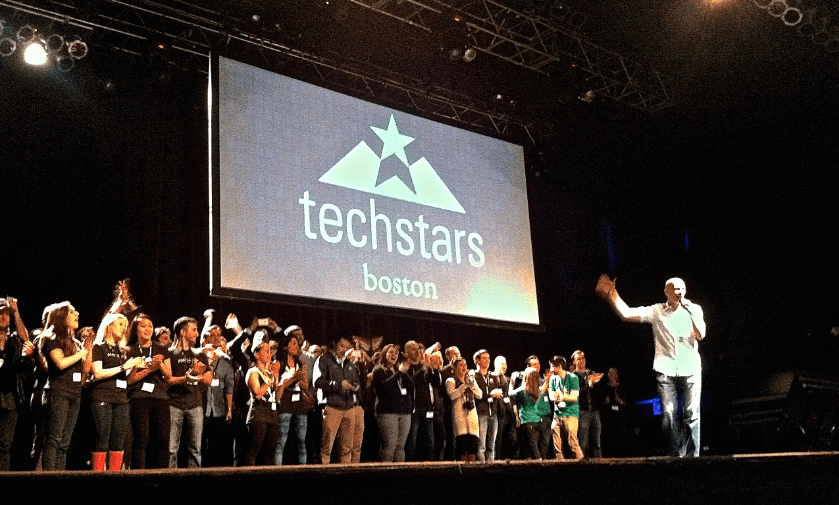Congrats to the incoming Techstars 2015 class! Here are five tips from Slater Victoroff, indico’s CEO, for getting the most out your next three months at this transformative incubator.
Leave your pride at the door
Congratulations! You’ve been accepted into Techstars, arguably the most prestigious incubator in the world. You’ve made it into the major leagues, and the world is going to start paying attention to you. After throwing years of blood, sweat, and tears into your business; after pulling consecutive all-nighters fixing your demos before customer meetings, after turning away job offer after job offer to work on your startup you finally get to pat yourself on the back. Yes, you’re a real company, and this is a big mark of success.
Source: http://bostinno.streetwise.co/
Now forget all of that.
It’s likely that you’re used to being a big fish in a small pond. It’s really easy to let that go to your head. You’re used to mentoring smaller companies around you and being a person of authority. That stops now. The only thing that pride will do for you at Techstars is slow your growth.
You’re around some of the most incredible early-stage entrepreneurs in the world. Act like it.
Listen to mentors, but only a few
If there’s one thing that sets Techstars far apart from other accelerators, it’s the mentors. People from all aspects of industry, people whom you may never have a chance to meet outside of Techstars, who have taken companies public, seen huge acquisitions, and mentored some of the great teams of Techstars past.
You will be surrounded by people you admire, and you will have to ignore them. Not all of them of course, but truthfully the sheer magnitude of mentors that Techstars works with will force you to limit the number that you listen to. Of the approximately 100 mentors you’ll meet, you’re really only going to have time to build serious relationships with about five. It will take some time to filter down to those who you think will truly provide lift and value, but nothing is more exhausting than trying to coalesce 100 different opinions.
Ask for help
Making a company is hard. Really, really hard. I’ve talked with hundreds of successful entrepreneurs and there isn’t a single one I’ve met who doesn’t think they could have done something better along the way. You will make mistakes. You will make trivial mistakes about the color of your website’s call-to-action button, and you will make deadly mistakes about how much information you give to a potential competitor.
A lot of entrepreneurs believe that asking for help implies weakness. They think that people outside of the company shouldn’t be privy to any of the challenges that they face since the company must always seem perfect to the outside world. This is one of the most harmful thoughts that you can hold on to.
Asking someone for help and sharing challenges with people close to you, especially other companies in your cohort, builds trust. You might get some worthwhile advice from a peer who has expertise in something that you don’t. There are a lot of moving pieces in a company, and just because you’re really good at finding engineers doesn’t mean that you won’t have trouble finding salespeople.
Trust each other
The startup landscape is filled with pitfalls. As a founder you have to perfect the art of telling partial truths, and holding back key information about your company. It’s exhausting.
Techstars is a safe place. Never before, or ever since have I found myself with a group of people who cared so much about helping each other. When you’ve got a really tough issue to deal with that you don’t feel comfortable sharing with the rest of your team (it happens), having that support net is invaluable.
In one of our first CEO roundtables, Semyon told the group that one of the largest indicators of the success of a Techstars class is the degree of trust that the teams have for each other. Looking around our office, surveying the four other Techstars companies around us, I have to say that I believe it. Our Techstars classmates have become customers, confidants, and close friends.
If you treat the people in your class like the rest of the startup ecosystem, you’re missing out on a chance to get to know amazing people who are going to change the world.
Sleep
indico started as Sunday night hackathons that went from 5pm to 5am. I once worked 120 hours a week for multiple weeks straight. Around the start of Techstars, my co-founder and I challenged each other to a stay-up-and-work contest to see how many continuous hours we could work. After about 40 hours we went back to bed.
All this is to say that I am no stranger to all-nighters. I realize that there’s something really sexy about those caffeine-fuelled nights filled with code and dubstep, but let me tell you the truth about those nights: the code all has to be re-written, and the eight hours of work you gained will be totally offset by the half-productivity you get for the rest of the week.
Sometimes you don’t have a choice and without an all-nighter you just won’t be able to hit a short-term critical goal, but in the long-run no amount of coffee will make you as productive as a good night’s sleep.
Going through Techstars is an experience like no other. You will have some of your highest highs, and your lowest lows. You will see a group of stellar companies completely transform over the course of three months. You will form the foundation of a network that will support much of your professional career. Hopefully, by the end of the program you’ll be well on your way to making a company that puts indico to shame.
But seriously: sleep.
